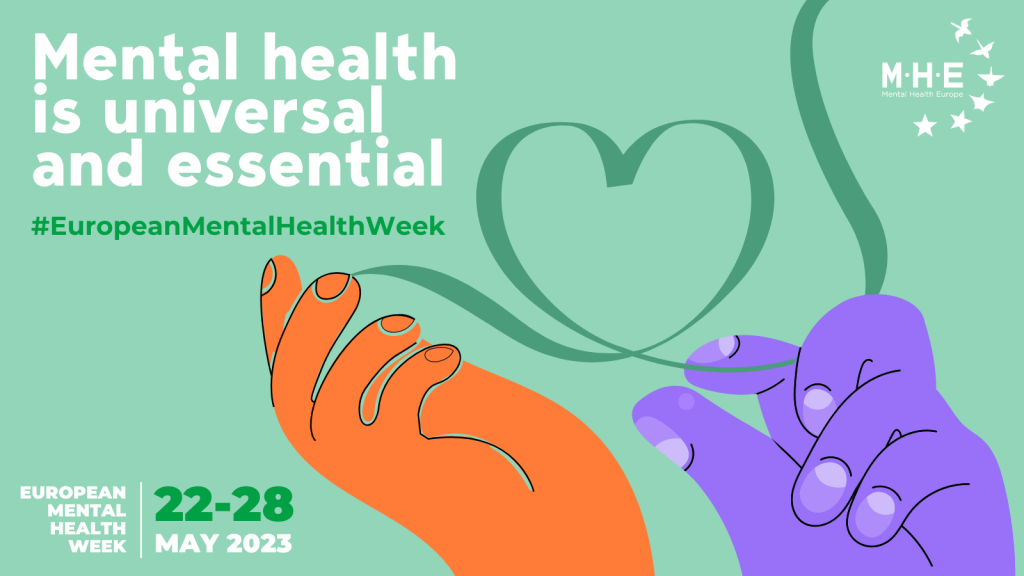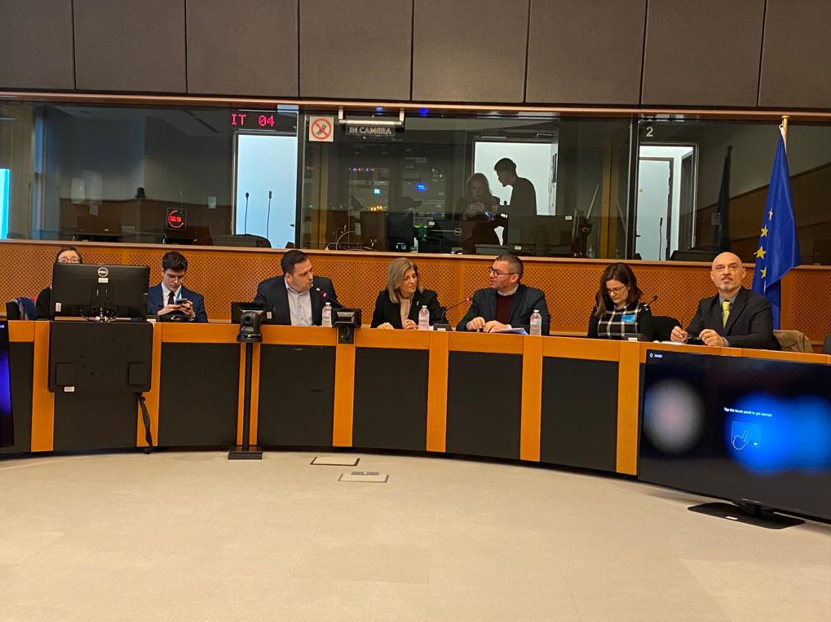Matt Bolz-Johnson: Valuing Mental Wellbeing in the Rare Disease Community
May 2023The recent COVID-19 pandemic was a wake-up call to the importance of the physical health of citizens to both society and the economy. In recent months, the importance of the mental health of citizens, and the population as a whole, has only just started coming to light and being recognised by policy makers, politicians and governments.
Even in the rare disease community, physical health has long been prioritised over mental health. The quest to secure a diagnosis, access to treatments, and drive research to find a cure have all overshadowed the psychological impact endured by those who have travelled along the rare disease journey.

When engaging with ePAG Advocates active in the European Reference Networks to map the needs that are specific to their rare disease, one common theme quickly surfaced: the accumulated and detrimental impact on mental health and wellbeing. When faced with living with an undiagnosed or rare disease, it seems we only have two options; either we are in crisis management mode or we are alone.
What is ‘mental wellbeing’?
To be able to have this critical and long-overdue conversation about our mental health, we first need to find a common definition of what mental health actually is. Many people use the term to indicate a negative state of being, as opposed to seeing mental health as an integral component of our broader health and wellbeing, which enables us to realise our full potential and participate in society. There is no health without mental health!
Mental health is dynamic and fluid, forever changing, and best seen on a continuum. You can move across the continuum from being in good health to being in distress or dealing with challenges and problems and back again. It can impact our mood, behaviour and cognition, expressed through our stresses, anxiety, perceptions and obsession. When it is persistent and pervasive it can be associated with significant distress and impacts on functioning and daily living. There are many factors that affect mental health and wellbeing, for example brain injury, infection, fever, hormone or neurological problems. Additionally, economic factors can impact your wellbeing, such as cost-of-living-crisis, inability to work and live independently, or social and environmental factors like social media, experiencing prejudice (racism, homophobia, misogyny) or climate change.

When talking about our mental health, language is important. The language traditionally used to talk about mental health has become stigmatising; a set of labels that reinforces negative stereotypes. Mental Health Europe has recently published “The Power of Language,” a glossary of mental health terms which was co-created with the mental health community to help fight this stigma. Our words have the power to start to change our personal, unconscious perception of what mental health is, as well as resetting social and cultural outdated biases that have become ingrained in the medicalised view of mental health. By simply replacing mental health ‘disorders’, ‘illness’ and ‘condition’ with mental health ‘distress’, ‘problems’ and ‘challenges’, one starts to destigmatise mental health and reduce discrimination.
Why is now a crucial moment to advocate for our unmet mental health needs to be addressed?
The political spotlight has recently turned to the importance of the mental health of citizens and society as a whole, due to the recognition of the increased vulnerability of many groups and communities affected by the social distancing and lockdown measures. Groups living with increased vulnerability affected by the pandemic were young people, women and people with an existing health condition.
Modern life has many social, economic and environmental factors that are incomparable challenges to our mental wellbeing, from the pandemic, to war in Ukraine, to the climate change and the cost-of-living crisis. Against the challenging backdrop of these many social, economic and environmental factors, people living with a rare disease face common stressors linked to their rarity, which can further increase the psychological impact on them and their whole family. These common stressors unique to living with a rare condition include long diagnostic journeys, limited access and availability of treatment options, uncoordinated care pathways, living with disabilities, limited work opportunities, being obliged to reduce or stop work for long periods of time, and social stigma.
It is time for the rare disease community to stop dealing with these challenges alone and come together to talk about our mental health and wellbeing; to share, to learn and to give recognition to our unmet needs. Our community can be leaders in effecting social change, at a time when political change has started to take root.
Furthermore, hearing young people talk about the importance of their mental health and wellbeing is truly inspiring. They were one of the groups who were disproportionately affected by the lockdown and social distancing measures during the pandemic, severely impacting their mental health, and thus have the power to drive progress in a previously unmatched capacity. We as a community must stand with them and empower their voices.
What are the next steps?
Having committed to developing a ‘Comprehensive approach to mental health’, which is expected in June, the European Commission is holding a series of meetings for MEPs and advocates to discuss the content, structure and timeline of the initiative.
At the meeting on the 21st of March, I called on MEPs to acknowledge the constant and unique challenges the rare disease community face in relation to their mental health and recognise them as a vulnerable population.
Ongoing support for this policy area gives me hope that together we can create a future for people living with rare diseases in which their mental health needs are recognised and met, facilitating their full participation in society.

A comprehensive approach on mental health is about investing now for the community and the next generations, and breaking the silence … with a focus on vulnerable groups.
Stella Kyriakides, European Commissioner for Health and Food Safety
Rare diseases have many hallmarks – rarity, complexity, severity, disabling but one hallmark that isn’t so other recognised is our resilience. Our mettle is tested on a daily basis, and we show our resilience in facing the adversity living with a rare disease. However, just because we are resilient, this doesn’t negate the need for psycho-social support to be available along our life journey, to act as a safety net at pressured times.
Matt Bolz-Johnson, Mental Health Lead and Healthcare Advisor
Disclaimer: the opinions – including possible policy recommendations – expressed in this article are those of the author and do not necessarily represent the views or opinions of EURORDIS. The publication of this article on the EURORDIS website does not equate to endorsement.
